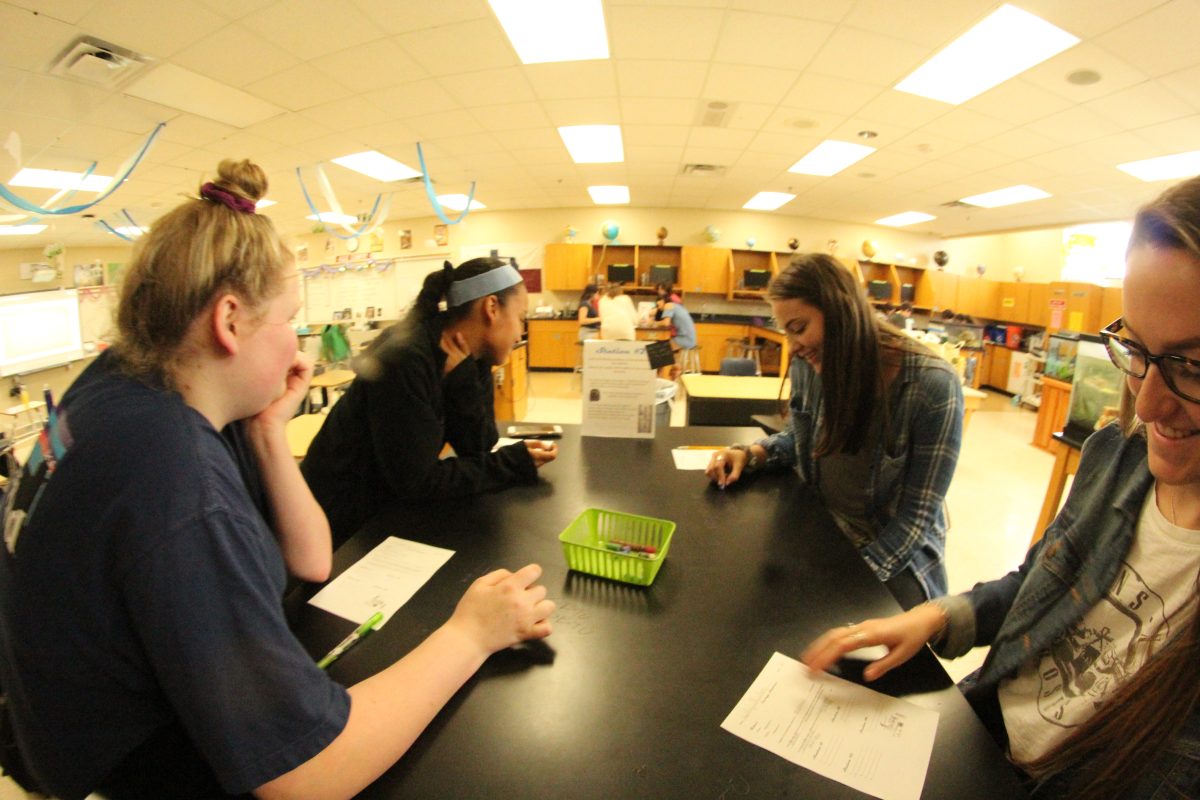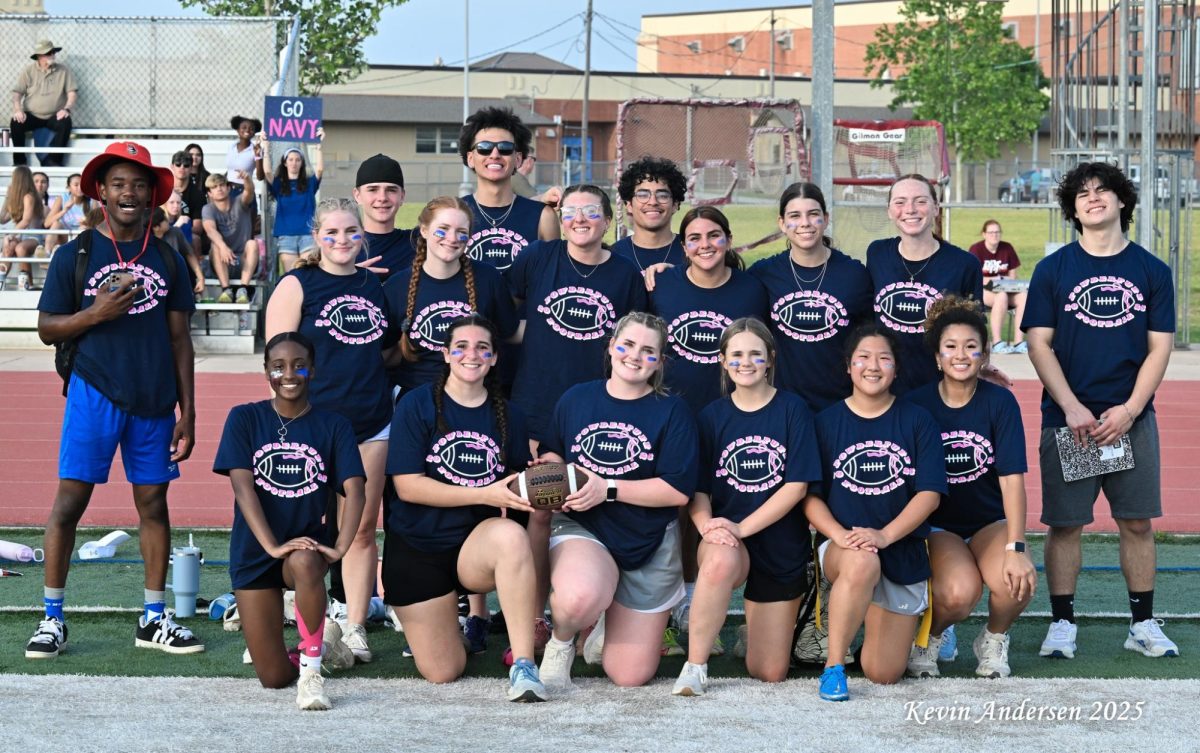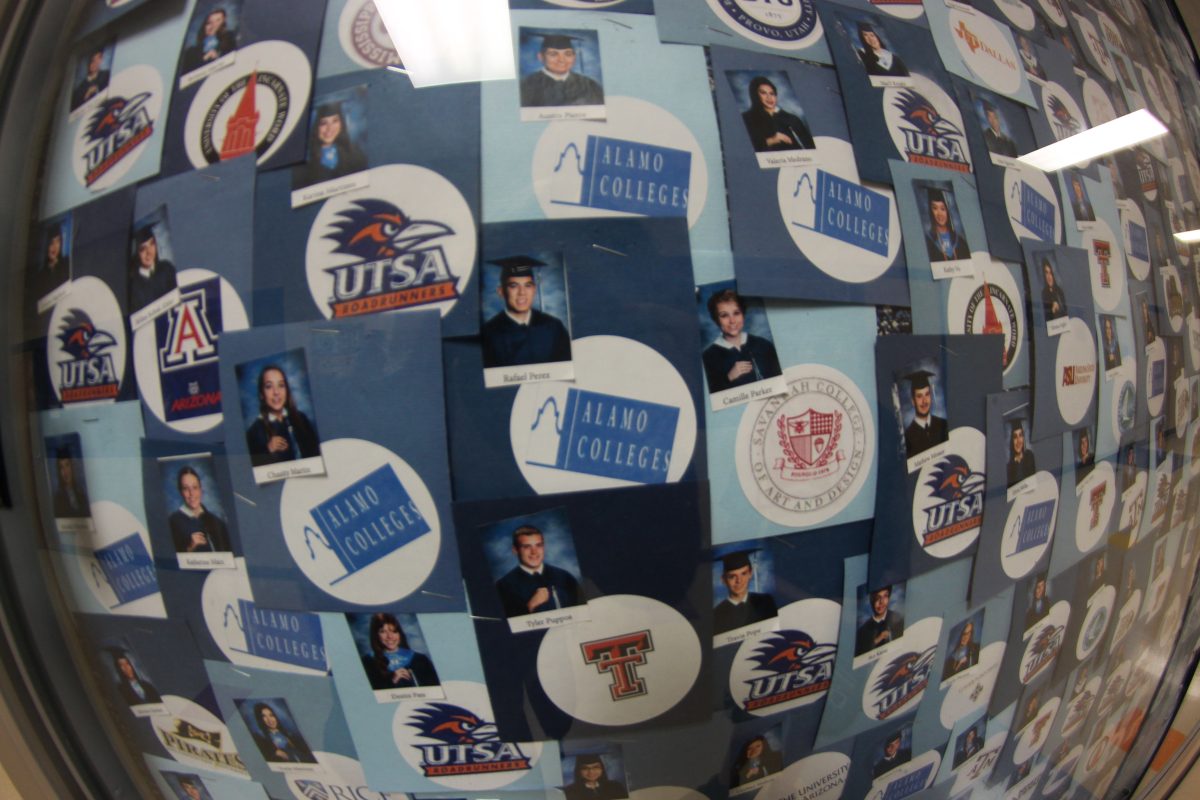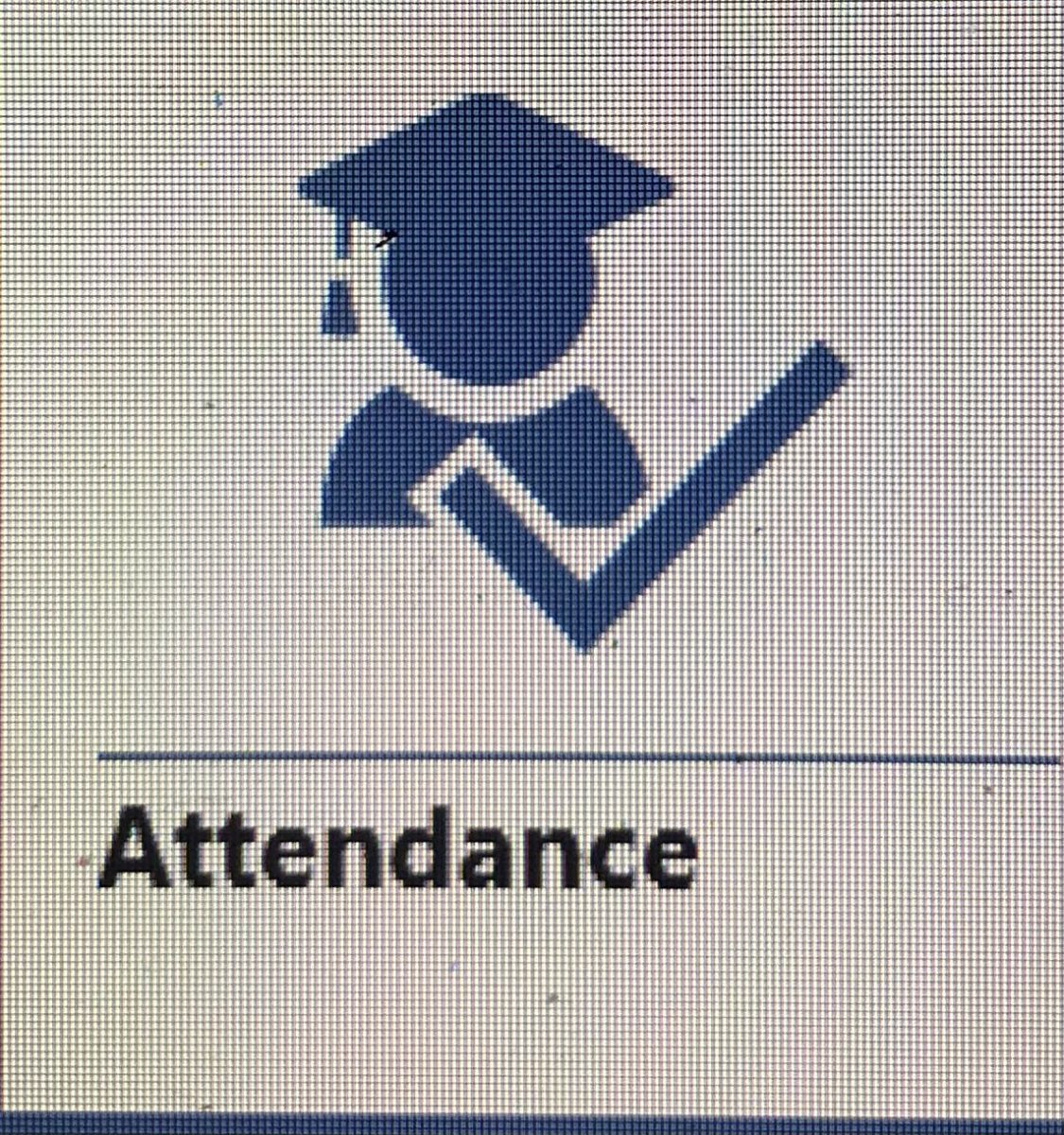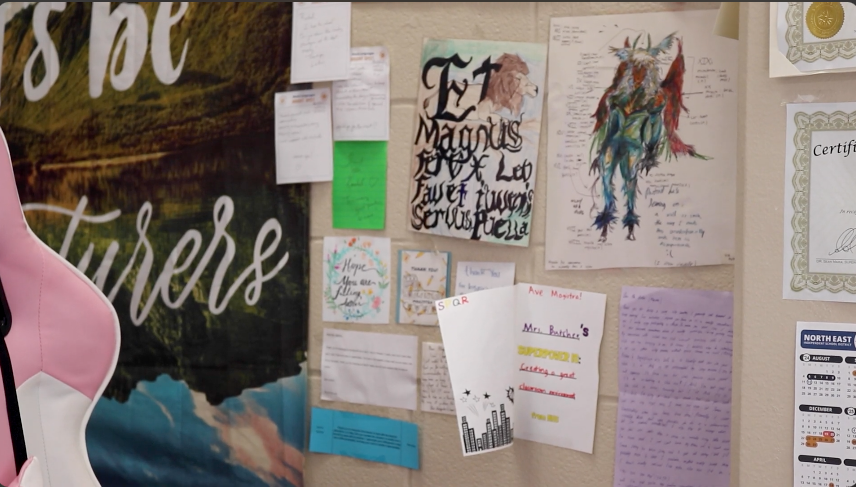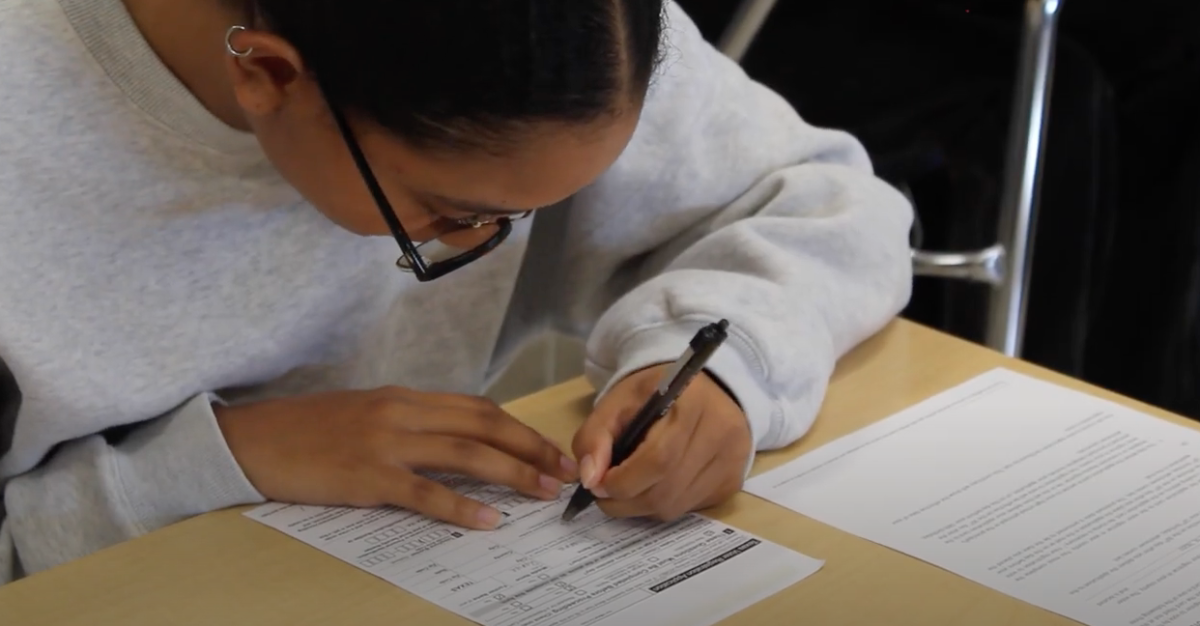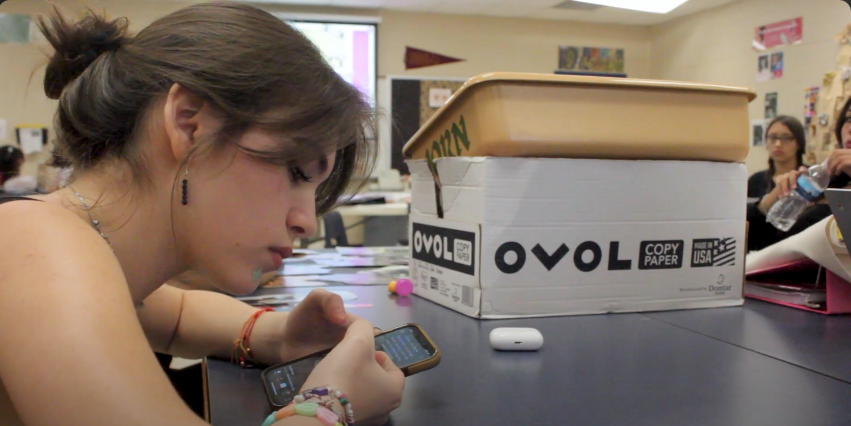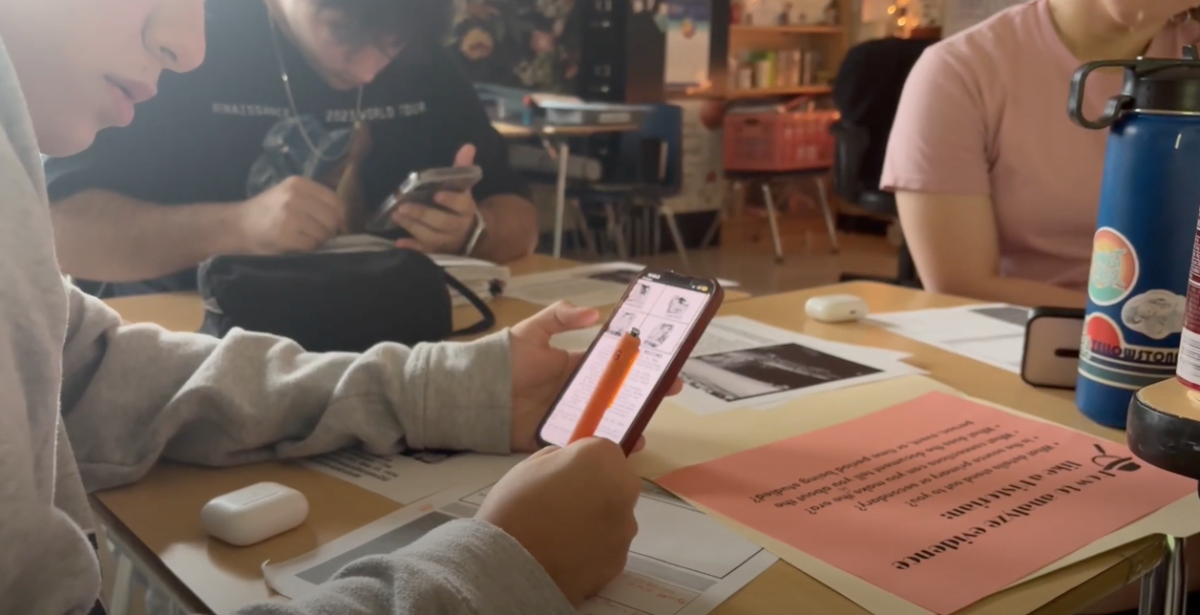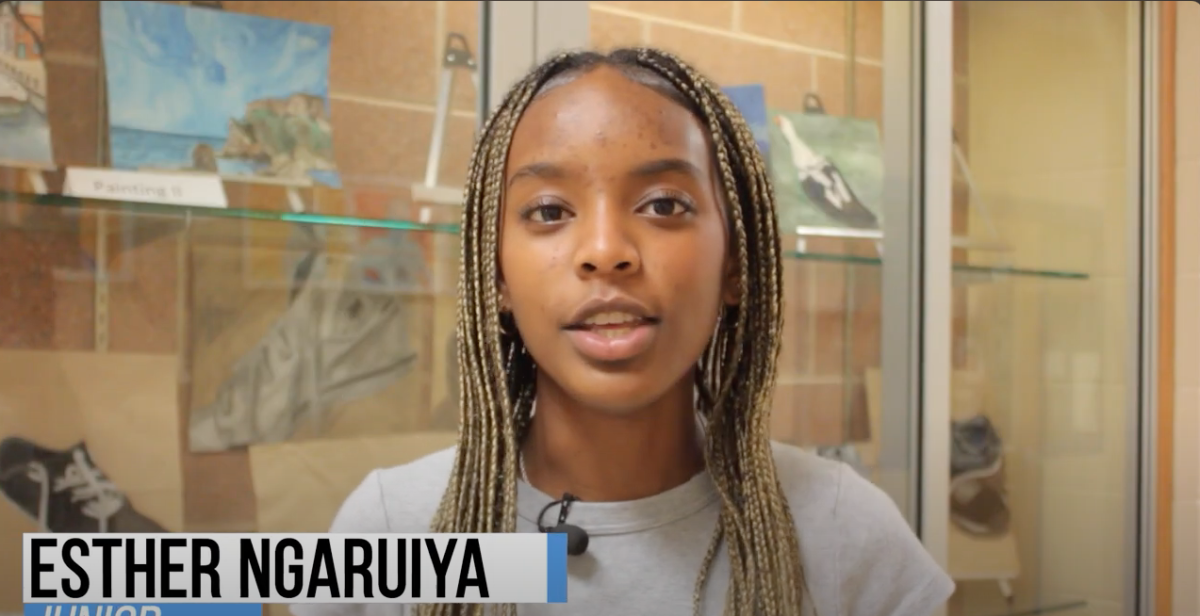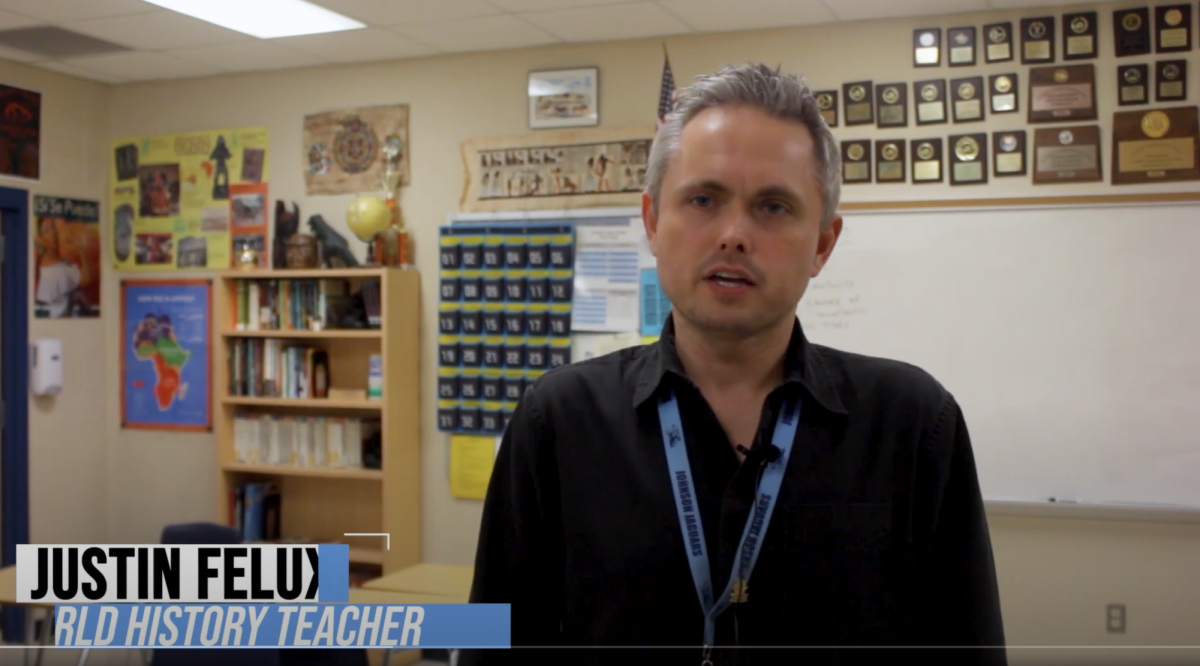by Joseph Sweeney | staff writer
Students have made course selections for next year, however, those wishing to change their courses can do so before the 28 of May. Many
“Next year I’m gonna be taking AP environmental science because I talked to the teacher during the course fair and thought it was very interesting,” sophomore Angie Vasquez said. “It appeals to my sense of politics and my interest in the environment.”
Advanced Placement biology and environmental sciences are some of the most popular of these classes, and expand on concepts students have learned in biology and chemistry I.
“What I consider to be AP biology is year two. Though it’s a collegiate level, we still kind of run it in a moderate way in terms of how they learn,” AP biology teacher Nicole Nickells said. “It’s project based, so they’re taking the processes and skill set they learned in year one, and they’re applying it in year two, meaning that they’re able to write FRQ’s, CRE’s, claim evidence reasoning based on like an article they’re reading based on something taking place in the medical field right now.”
AP biology is a more in-depth look at what students learned in regular or Pre-AP biology, with more study and application of concepts which students have already learned.
“So they’re able to take what they’ve already learned and apply it,” Nickells said. “So, right now they’re trying to determine: ‘do I want to go into the medical field; is this stuff interesting enough for me? Do I want to go into bioengineering, chemistry?’”
Students are also able to participate in more labs than in freshman year, all of which are assigned in order to prepare them for the AP test in May. These labs are meant to help apply scientific concepts to events occurring right now in the real world.
“So with the labs that you would do in year two, the very first portion of that lab is the investigation: the research that goes into the concept itself, and then they run a lab based on a lab protocol, which the AP college board would give them. Then, once they’ve run the lab, we call that the known, they know what to expect in terms of variables, and they know who all the key-players are for that particular lab, why they’re doing it etc. The second piece is for them to collaborate as a group, and develop their own design for a second trial, multiple trials for the same concept, which means they’re running an unknown, so now they have a different independent variable,” Nickells said. “So if you study the effects of different types of soil on animal behavior for using the roly-poly lab, maybe the second time you’d want to study the effects of caffeine, because there’s actually caffeine in some of the soil composites they collect. So it’s the investigative part that’s second: known, then unknown.”
Part of the AP level class includes students reviewing Biology I concepts in a flipped classroom system where students study concepts at home to do work later on in class.
“I would say an average of 30-40 minutes of studying every night if you can’t listen in class very well; if you can’t take good notes, it’s not spoon-fed to you,” Nickells said. “It’s very much like a college class, but a moderate college class, cause we’re still high school students.”
The class is recommended for those with a pre-established interest in science, as the subject matters are typically not enjoyed by those just looking for their next science credit.
“If you’re already not interested in science, walking through the door to take an AP biology class for points is just gonna harm that student, and I’m hoping that they’ll fall in love with it at the end of the year. But I’ve had sometimes those students that are just here for points, they suffer,” Nickells said. “It’s really difficult for them because it’s not their interest. So, if it’s not your interest in life processes and what happens in the body in relation to the outside world, if you’re not interested in those things it can be very difficult; but if you are, just a little interested, I can help with the rest.”
Historically, AP biology has been considered a junior level class.
“It really doesn’t really matter, it really depends on your course load; you probably would not want to take AP biology with AP physics or AP chemistry at the exact same time. That would be a little overwhelming for a junior, but it also depends on that student, and an excellent class to take before mine would be APES, because they go well together,” Nickells said.
Environmental systems and AP environmental science, or APES, are other classes available starting junior year, and both take more in-depth looks in studying Earth processes.
“The AP [class] we have to follow the college-board standards, so we do a lot of practice with writing and science, like free response questions,” APES teacher Ashley Lockridge said.
The regular and advanced classes both count towards the same credit, with student demographics being split evenly across junior and senior classes.
“We do everything from human populations to ecology to soil and sewage treatment atmosphere, air, water pollution. It’s kind of all over the place,” Lockridge said.
Environmental labs involve the study of Earth’s elements, such as soil, and learning the effects of human activity on such. Math is also essential to the class, as students must do metric conversions, similar to dimensional analysis in chemistry.
“We talk a lot about soil, food, and what everybody eats. We talk about sewage treatment and trash, and [how] everybody, you know, goes to the bathroom and makes trash, and so we talk about where that goes and the environmental impacts of all that,” Lockridge said. “So things like chemistry and biology would be a bit more abstract; they are a bit more detailed in their subject matters, ours is more broad.”
The class consists of students practicing free response questions and other concepts in preparation for the AP test in May, though is not as work-intensive as AP biology.
“Because kids that take this class historically are also taking a lot of other AP classes, I definitely try not to do a ton of outside class-stuff,” Lockridge said. “Typically I do two quizzes per unit that you’ve typically have got to study for.”
All classes focus on getting students to take their respective AP test in May, which is required to achieve college credit for those not enrolled in dual credit.
“Everything we do here is to peak their interest in science,” Nickells said. “I don’t care what field in science, but I want are brilliant minds going into science, cause we need them, and it doesn’t have to be biology, but we’re trying to peak their interests and we’re trying to get those investigative research skills, problem solving [skills].”
Additional classes available to upperclassmen include AP chemistry, Earth & space, forensics, and the three primary levels of physics.
“What do I like about science classes?” Vasquez said. “Well, I enjoy how it can be applied to the real world, and [they have] knowledge that furthers my view of things like everyday objects, like what goes on in a flower and how the weather works. It offers a very interesting perspective of the world we know.”


